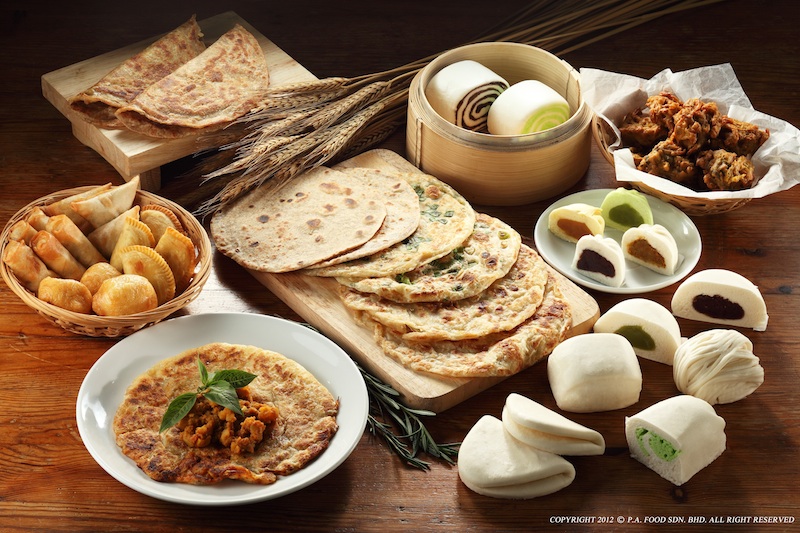Wednesday, October 10, 2012
Friday, October 5, 2012
Chinese Steamed Buns For Malays
Would you be surprised if you are told that the founder of “Pau Ahmad” is not a Malay man named Ahmad, but a Chinese businessman instead?
The founder of “Pau Ahmad” is indeed a Chinese businessman named Chen Fang Xin, you may also call him the pioneer or leader of Halal (permissible to use by Islamic law and custom) steamed buns.
“Pau Ahmad” has now been renamed as “P.A Food”. Those who do not know Chen would wonder whether it was his luck that made his products comply with the strict requirements for “halal” registration. In fact, it was his hard-earned fruits.
He saw a great potential in the Malay market and started the halal steamed bun business with his cousin in 1985. Like digging a well in a desert, many of his friends ridiculed him and dampened his enthusiasm. Meanwhile, Malays could hardly be convinced and accept his buns.
However, with his constant efforts to send his buns and steamers to Malay restaurants and stalls, he has gradually broken the barrier of different dietary cultures. His buns have been widely accepted by Malays since then.
Just like other businessmen, Chen faced difficult times, too. He went through the economic crises in 1980s and 1990s.
In 1986, when his business was just started, the demand for steamed bun was high. This allowed him to safely go through the economic turmoil and at the same time, he got his business right on track. A year later, he started the research on frozen buns and he brought his products to hypermarkets. For the expansion of his business, he replaced labor production with machines bought from Japan.
In 1997, he expanded his frozen steamed buns and snacks business to foreign countries and for the first time, he felt the power of the Asian financial crisis. His business dropped by 60% and he was unable to collect some of the debts. Fortunately, the factory was on rental basis that allowed for smaller expenses. He sacked only less than 10% of employees.
“At that time, business in urban areas dropped sharply and agricultural products were more valuable. Many Malays chose to return to their kampong. Fortunately, my company’s cash flow was strong and the business could be maintained without any investment and the purchase of machinery,” said Chen.
After the Asian financial crisis in 1997, he realized that he could not rely only on supplying buns and snacks. Thus, he started to be an Original Equipment Manufacturer (OEM), looking for greater business opportunities and more profits.
“I think a businessman should go beyond the traditional business framework. The current trend is the ‘Blue Ocean Strategy’ and the ‘Red Ocean Strategy’. We should implement the Blue Ocean Strategy to create our own business before the emergence of competitors. At the same time, we must not go with the current or run away when we face problems. Instead, we should have the courage to face and find a way to get rid of the plight,” he said. (Translated by SOONG PHUI JEE/ Sin Chew Daily)
Subscribe to:
Posts (Atom)

.jpg)
